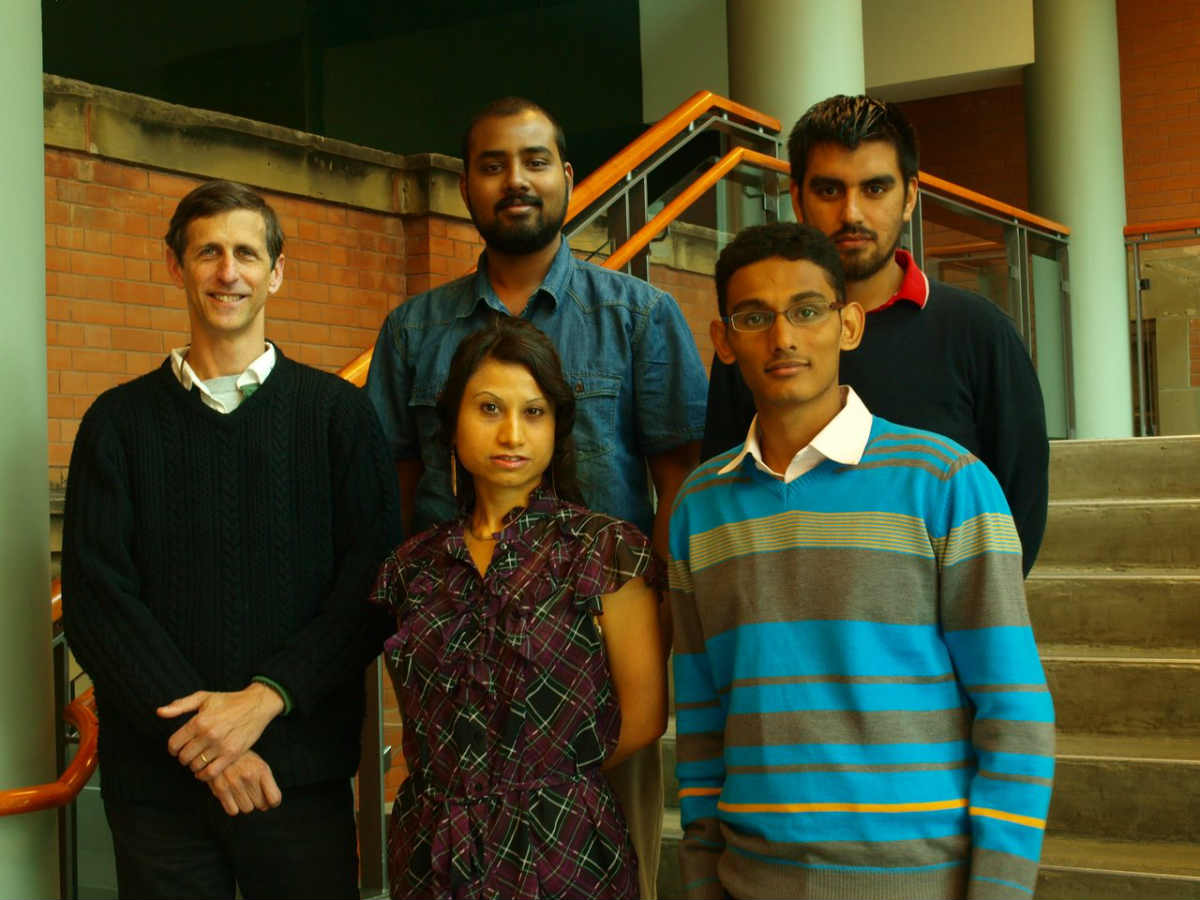
These University of Alberta computing scientists made headlines for their work applying machine learning to prostate cancer treatment. (L to R, top: Russ Greiner, Luke Kumar, Roberto Vega, bottom: Nazanin Tahmasebi, Jay Patel. Not pictured: Eyal Gofer.)
With implications for future treatment of prostate cancer patients, the work of University of Alberta computing scientists has been recognized in an international machine learning competition.
The competition was hosted by DREAM, an open-science effort dedicated to improving health and health care through crowdsourcing problem solving.
"DREAM posted a challenge about prostate cancer, asking for an algorithm to predict which patients will respond to certain treatments and which patients will adhere to the medication regimen," explained Russ Greiner, professor in the Department of Computing Science and author on the study. "The idea is, eventually, to use these algorithms to help clinicians select the best mode of treatment."
Greiner worked with a team of students, including graduate students Luke Kumar and Roberto Vega Romero, tying for the top place in the competition against over 50 teams from around the world. But the work didn't stop there.
Competing computing scientists compound findings
"After the competition was over, the top teams exchanged ideas and combined our individual solutions to create a better approach to tackle the problem," explained Vega Romero. "This collaboration would not have happened without the competition bringing us all together."
"The challenge organizers also made sure our quantitative findings are featured in major clinical journals so that it reaches the practitioners and could have a real impact in prostate cancer medical practices," added Kumar.
While the results aren't clinically relevant yet, the team plans to continue applying the power of machine learning to tackle tough health challenges.
"Not only was the result interesting, but the outcome of this challenge may actually be a great way of solving these problems in the future," said Greiner. "There is a growing community of people in the medical field who are aware of machine learning. It is another tool that we can use to improve the health of our population."
The paper, "A DREAM Challenge to Build Prediction Models for Short-Term Discontinuation of Docetaxel in Metastatic Castration-Resistant Prostate Cancer," was published in JCO Clinical Cancer Informatics (doi: 10.1200/CCI.17.00018). The publication was named one of the three best papers for the IMIA Yearbook of Medical Informatics 2018 ('Cancer Informatics').